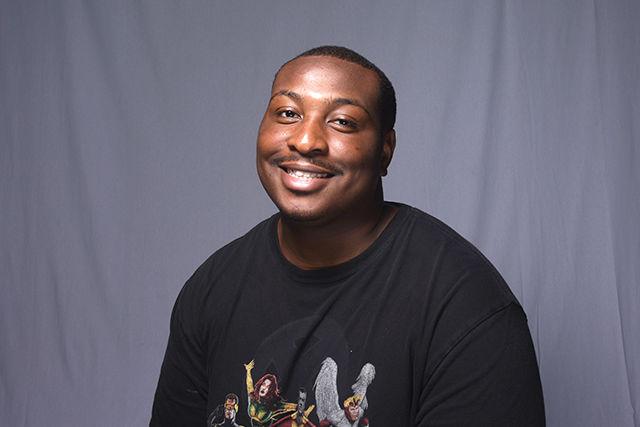
Kenton Gibbs
Kenton Gibbs
In the past few months activism from athletes has taken off. Athletes are following the path blazed by pioneers like Jim Brown, Kareem Abdul-Jabbar and Muhammad Ali. Athletes in many sports on every level are participating in active protests against various topics. The most popular issue was victimization of people of color by law enforcement officers but a new conversation is starting.
Last Saturday ESPN’s College GameDay was in Madison, Wisconsin for the top-10 matchup between the Ohio State Buckeyes and the Wisconsin Badgers. Badgers’ basketball player Nigel Hayes took the opportunity to start the conversation about student-athletes being compensated. He did this by holding a sign that said, “Broke college athlete anything helps.” It had his Venmo account information attached below those words.
Accepting these types of donations is illegal for student-athletes, so all the proceeds will be given to local Boys & Girls Clubs. However, according to Hayes, “The sign was strictly to generate conversation.” Similar to the protests conducted by Colin Kaepernick, many people are doing all they can to discredit the messenger and completely ignore the message. An article by Mike DeCourcy was titled “Wisconsin’s Nigel Hayes seems like the wrong guy to be protesting the NCAA.” He took little to no time to address why athletes should or should not be paid.
Unfortunately this dedication to a lack of awareness allows mass inequalities to continue. The NCAA often utilizes a circular model of thinking by saying the players are not paid because they are amateurs. Then if the natural follow-up question of “What makes them amateurs?” is asked, the response would be because they are not paid.
Another main phrase that allows for not paying players is the phrase student-athlete. Most people do not know how this term came to be. Walter Byers, the first executive director of the NCAA, invented the term student-athlete to counter attempts requiring universities to pay workers’ compensation. In the 1950s, the term came into being when the widow of Ray Dennison filed for workmen’s-compensation death benefits after her husband had died from a head injury received while playing football in Colorado for the Fort Lewis A&M Aggies.
If a full athletic scholarship to a Division I university was so perfect and players were compensated fairly, then why would some of the biggest detractors be the people who made the best out of the deal? Arian Foster and Michael Bennett are two pro-bowl caliber NFL players who vehemently oppose the NCAA’s amateurism rules. In the movie “Schooled: The Price of College Sports,” Arian Foster compared being a student-athlete to an indentured servant when he said, “It’s funny. I looked up the definition of indentured servant and it’s exactly what a student-athlete is. You get food, you get accommodations and you get training, but you don’t get pay.”
Michael Bennett had this to say when asked in an E:60 interview whether student-athletes should get paid or not, “Hell yeah college players should get paid. [The] NCAA gets paid. [The] Rose Bowl gets paid. Everybody gets paid except the people making the product. In some countries, they call that slavery.”
It is amazing how no one sees the problems with the NCAA until they feel wronged by the NCAA. For example, Gov. Pat McCrory deemed it “a multibillion-dollar, tax-exempt monopoly.” Yet he never spoke against them before this moment. Well I agree with McCrory … all the time not just when I’m upset. Listen to Hayes, hear his experience, research what he’s talking about and don’t just say, “Student-athletes should be happy with what they get and shut up.”
A version of this article appeared in print on Oct. 20, 2016 on page 14 with the headline: To pay or not to pay: That is the question